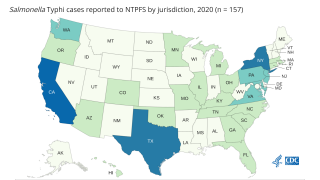Typhoid Vaccinations Can Be A Cost-Effective Solution

Researchers at the Yale School of Public Health say introducing a typhoid conjugate vaccine (TCV) into routine child vaccine schedules and conducting vaccination campaigns for young teenagers is a cost-effective solution to reduce the burden of typhoid.
This Yale study published on May 24, 2019, is the 1st comprehensive analysis of the cost-effectiveness of different typhoid vaccination strategies for 54 countries hit hardest by typhoid.
In the Yale modeling study, the researchers compared various strategies:
- no vaccination
- routine immunization at 9 months
- routine immunization at 9 months with catch-up campaigns to either age 5 years or 15 years
An optimum strategy for a country was considered one that ‘maximized the average net monetary benefit.’ TCV vaccination was likely to be cost-effective in countries with 300 or more typhoid cases per 100,000 person-years.
Individual country reports on the cost-effectiveness and potential benefits of the TCV vaccine can be found at Together We Can Take On Typhoid.
The typhoid conjugate vaccine, Typbar-TCV®, was recently approved by the World Health Organization and is currently recommended as part of an integrated approach to controlling the disease along with improvements in water, sanitation, and hygiene.
Typbar TCV is a vaccine containing polysaccharide of Salmonella typhi Ty2 conjugated to Tetanus Toxoid. Vi Capsular polysaccharide of Salmonella typhi alone elicit B cell responses, but the conjugation of bacterial polysaccharide to a protein carrier provides foreign peptide antigens that are presented to the immune system eliciting antigen-specific CD4+ Th cells, referred to as T-dependent antibody responses.
A hallmark of T-dependent responses, which are also elicited by toxoid is to induce both higher-affinity antibodies and long-term immune memory.
The Typbar-TCV vaccine overcomes many of the limitations of earlier typhoid vaccines, such as:
- offers longer-lasting protection
- requires fewer doses and is suitable for children as young as 6 months of age
- allowing it to be included in routine childhood immunization programs
“We have provided all of the information for decision-makers to evaluate whether the typhoid conjugate vaccine is a good value,” said Virginia Pitzer, associate professor of epidemiology at the Yale School of Public Health and the study’s senior author.
“Now each country will have the information needed to decide for itself whether or not to apply for Gavi funding to introduce the vaccine.”
Typhoid is a serious and sometimes fatal disease caused by the bacteria Salmonella Typhi.
It impacts over 10 million people a year and is spread through contaminated food and water, usually due to inadequate sanitation and water infrastructures in low- and middle-income countries.
While the global incidence of typhoid has declined in recent years, prolonged multi-year outbreaks continue to pose a public health threat, says the WHO.
Recent typhoid vaccine news:
- Zimbabwe’s Typhoid Vaccination Campaign Concludes Successfully
- Typhoid Vaccine May Offer Extended Protections
“Expanding access to, and coverage of, TCVs can protect children and adolescents from illness, reduce the need for antibiotics, slow emergence of drug-resistant strains, and save lives,” said Dr. Kathleen Neuzil, director of the Center for Vaccine Development and Global Health at the University of Maryland School of Medicine and director of the Typhoid Vaccine Acceleration Consortium (TyVAC).
TyVAC, one of the funders of the study, is a partnership between the Center for Vaccine Development and Global Health at the University of Maryland School of Medicine, the Oxford Vaccine Group at the University of Oxford and PATH, an international nonprofit, that aims to accelerate the introduction of TCVs into low-resource settings.
The study was led by Pitzer and Professor A. David Paltiel, co-directors of the Yale School of Public Health’s Modeling Concentration, in close collaboration with a team in the Center for Health Economics and Modelling Infectious Diseases (CHERMID) at the University of Antwerp in Belgium. No conflicts of interest were disclosed.
Our Trust Standards: Medical Advisory Committee

























